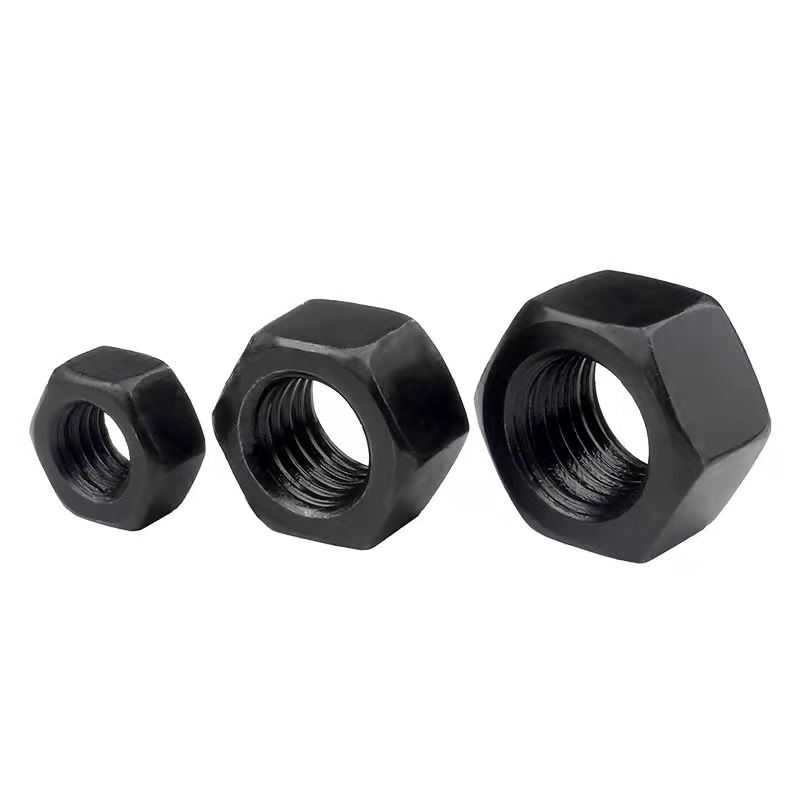Stud Bolt Manufacturing with Nuts for Reliable Construction Applications
Oct . 17, 2024 10:35 Back to list
Stud Bolt Manufacturing with Nuts for Reliable Construction Applications
The Importance of Stud Bolts with Nuts in Industrial Applications
In the realm of industrial manufacturing and assembly, fasteners play a pivotal role in ensuring structural integrity and reliability. Among the various types of fasteners available, stud bolts with nuts are regarded as essential components. These items are not merely functional but are critical to the safety and efficiency of countless applications across different sectors, including construction, automotive, and aerospace. In this article, we delve into the characteristics, manufacturing processes, and applications of stud bolts with nuts while emphasizing their significance in factory operations.
Understanding Stud Bolts
Stud bolts are cylindrical rods with thread on both ends, designed to be inserted into pre-tapped holes or to work with nuts. They serve to create a reliable and sturdy connection between two or more components. The design of stud bolts allows for greater tension as compared to regular bolts, making them ideal for high-stress applications. Additionally, they can be manufactured in a variety of materials, including carbon steel, stainless steel, and alloy steel, each chosen based on the specific requirements of the application, such as corrosion resistance, tensile strength, and temperature tolerance.
Nuts The Perfect Companions
The nuts used with stud bolts vary in type, from standard hex nuts to more specialized variations such as lock nuts or heavy hex nuts. The choice of nut is essential as it ensures the stud bolt connection remains secure under various conditions, including vibrations and thermal expansions. When properly matched with a stud bolt, a nut can significantly contribute to the overall strength and reliability of the assembly.
Manufacturing Process
The production of stud bolts and nuts is a sophisticated process that involves several stages. It begins with the selection of high-quality raw materials, which are subject to rigorous inspection to meet industry standards. The manufacturing process typically includes forging, machining, and heat treatment.
stud bolt with nuts factory

1. Forging In this initial phase, metal is heated and shaped into blanks that will be transformed into stud bolts. Forging enhances the metal's grain structure, improving its strength and durability. 2. Machining Once the blanks are forged, they undergo machining to create the precise dimensions and threading necessary for proper fitment. This step is vital to ensure that the stud bolts and nuts interact seamlessly.
3. Heat Treatment After machining, heat treatment is applied to enhance the mechanical properties of the stud bolts and nuts. This process helps relieve internal stresses and increase hardness, producing components that can withstand significant loads.
4. Finishing The final steps typically involve surface finishing processes such as coating or plating to provide additional protection against corrosion, especially for products intended for outdoor or chemically aggressive environments.
Applications Across Industries
Stud bolts with nuts find their applications in a myriad of industries. In construction, they are used extensively in structural steel frameworks and in the assembly of heavy machinery. The oil and gas industry relies on stud bolts to securely fasten pipelines and pressure vessels because of their ability to handle high-pressure environments.
In the automotive sector, stud bolts are commonly employed in engine assembly, where high temperatures and vibrations are prevalent. Furthermore, the aerospace industry utilizes them in aircraft manufacturing, where weight is a critical consideration, and failure is not an option.
Conclusion
The significance of stud bolts with nuts in industrial applications cannot be overstated. Their robust construction, combined with the versatility of their materials and design, makes them indispensable in building and maintaining the infrastructure and technology that power our modern world. As industries continue to evolve and demand higher standards of reliability and efficiency, the role of stud bolts and nuts will only become more pronounced. By understanding the manufacturing processes and applications of these fasteners, businesses can make informed decisions that support continuous improvement and operational excellence in their respective fields. Investing in quality stud bolts with nuts from reputable factories is essential for ensuring safety, durability, and performance across various industrial applications.
Latest news
-
High-Quality Panel Stud Bolt Reliable Panel Stud Bolt Factory & Suppliers
NewsJul.08,2025
-
High-Precision Fine Thread Locknuts Manufacturer & Supplier Custom Solutions
NewsJul.08,2025
-
PH Imperial Stud Bolt – High Strength Fasteners from Leading Supplier & Factory
NewsJul.07,2025
-
High-Quality Allen Wrench Bolts Leading Factory, Company & Suppliers
NewsJul.07,2025
-
Wholesale Ball Stud Bolt - High Quality Supplier & Factory Price Reliable Wholesale Ball Stud Bolt Company
NewsJul.06,2025
-
High-Strength Alloy Bolts Manufacturer & Supplier Quality Alloy Fasteners Factory
NewsJul.06,2025
